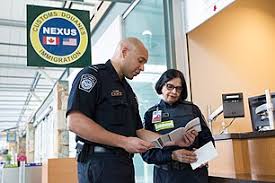Introduction:
The Canada Border Services Agency (CBSA) Declaration plays a vital role in maintaining the security and integrity of Canada’s borders while facilitating trade and travel. This essay explores the significance, objectives, scope, and implications of the Canada CBSA Declaration as a critical tool for border enforcement and risk management in Canada.
Overview of the CBSA Declaration
The CBSA Declaration refers to the legal requirement imposed on individuals entering Canada to provide accurate information about their goods and personal possessions. It is a declaration of the contents and value of imported goods, which are subject to customs duties, taxes, or other border controls. The declaration process is primarily aimed at ensuring compliance with applicable customs laws, security regulations, and trade policies for all inbound travelers and shipments.
Objectives of the CBSA Declaration
The CBSA Declaration serves multiple objectives. Firstly, it allows the CBSA to accurately assess duty and tax obligations for the imported goods. Secondly, it helps to enforce various border control measures, including the prohibition of restricted or prohibited items. Thirdly, the declaration acts as a mechanism for collecting data necessary for risk assessment and management, aiding the identification of potential threats to national security, public health, and safety.
Scope of the CBSA Declaration
The CBSA Declaration applies to all goods and personal possessions brought into Canada, either by air, land, sea, or mail. The declaration is mandatory for both Canadian residents and visitors, as it ensures transparency and accountability in cross-border movements. Additionally, the CBSA Declaration covers a wide range of information, including the description, value, quantity, and origins of the goods being imported.
Declaration Process and Documentation
To complete the CBSA Declaration, travelers are required to provide accurate and complete information using the appropriate customs forms and electronic systems. The declaration process involves providing documentation such as a valid passport, travel itinerary, invoices for commercial goods, or receipts for personal possessions. These documents help establish the legality and compliance of the imported goods and aid in conducting thorough inspections if necessary.
Compliance and Enforcement
The CBSA Declaration demands a high level of compliance with customs laws and regulations. Non-compliance, such as providing false or misleading information, may result in penalties, fines, or even criminal charges. To enhance CANADA VISA FROM BELGIUM enforcement, the CBSA employs various measures, including intelligence analysis, risk profiling, technology, and cooperation with domestic and international partners to identify potential threats and mitigate risks.
Facilitating Trade and Travel
Despite its regulatory nature, the CBSA Declaration also contributes to trade facilitation by providing relevant information and streamlining clearance procedures. Accurate declarations expedite the processing of goods and minimize delays at border checkpoints, ensuring the efficient movement of goods across Canada’s borders. This aspect reinforces Canada’s commitment to fostering international trade and attracting foreign investment.
Advanced Passenger Information
The CBSA Declaration is closely linked to the collection of advanced passenger information (API) for air travelers. Airlines are legally required to transmit passenger data to the CBSA before arrival, enabling pre-screening and risk assessment activities. This additional layer of security allows the CBSA to identify potential high-risk individuals or situations before they reach Canadian soil.
Technological Advancements
To keep up with the ever-evolving landscape of international trade and travel, the CBSA has embraced technological advancements to enhance the efficiency and effectiveness of the declaration process. Utilizing electronic systems, such as the Automated Commercial Environment (ACE) and the Interactive Advance Passenger Information (IAPI) system, enables faster and more reliable data submission, reducing potential errors and enhancing risk management capabilities.
Privacy and Data Protection
With the increasing amount of data collected during the CBSA Declaration process, privacy and data protection are of utmost importance. The CBSA ensures the confidentiality, integrity, and security of personal information in compliance with applicable laws and international standards. Robust safeguards are in place to protect individuals’ privacy rights while allowing the CBSA to fulfill its mandate of border security and trade facilitation.
Conclusion
In conclusion, the CBSA Declaration is a critical element in maintaining the security, integrity, and efficiency of Canada’s borders. Its objectives range from collecting duty revenue and enforcing customs regulations to protecting national security and facilitating trade. By embracing technological advancements and ensuring compliance, the CBSA contributes















